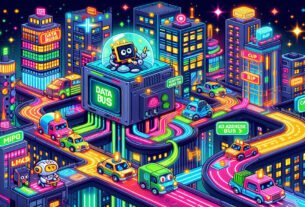Imagine, my love 😍: you’re running in your own world with your own character, enemies move according to your rules, and you control all the game mechanics. 🎮✨
This is exactly what game development is! But don’t worry… I’ve prepared a step-by-step technical guide, practical tips, error-prevention tricks, and even a simple game code example! 😎
🕹️ 1. Game Engines: Unity vs Unreal
Choosing a game engine is like deciding which weapon to fight with 😏
Unity
- Coding: C#
- Platforms: 2D, 3D, mobile, VR/AR
- Asset Store: ready-made characters, objects, effects
- Community: massive, full of tutorials and guides
💡 Tip: Unity is ideal for beginners because the community can help you even if you make mistakes 😅
Unreal Engine
- Coding: C++ or Blueprint (visual scripting without code)
- Graphics: AAA-level, realistic lighting
- Blueprint allows fast prototyping
💡 Tip: If your goal is cinematic games, Unreal is perfect!
Comparison:
- Unity = “Flexible, fast, and indie-friendly” 🚀
- Unreal = “Cinema-quality, but requires patience” 🎬
🎯 2. 10 Steps to Make Your First Game + Technical Tips
1️⃣ Find an Idea
- Write down your story, character, and world.
- Start with a simple mechanic: “Character jumps and avoids enemies.”
💡 Tip: Use the MVP (Minimum Viable Product) approach.
2️⃣ Install the Game Engine
- Download Unity via Unity Hub.
- Create a new project: choose 2D or 3D.
3️⃣ Basic Project Settings
- Character size, camera angle, lighting.
💡 Tip: Use Orthographic Camera mode for 2D games to avoid perspective issues.
4️⃣ Design Characters and Objects
- Get free sprites or models from the Unity Asset Store.
- Add Rigidbody and Collider to your character to enable physics.
5️⃣ Movement and Controls
- Set up input (keyboard/gamepad).
- Add simple movement code in C#.
6️⃣ Enemies and Obstacles
- AI: use transform movement for simple enemy motion.
- Goal: enemies follow the player or move along a set path.
7️⃣ Physics and Collisions
- Use Rigidbody and Collider to stop the player when hitting walls.
- Optimize interactions with Physics2D or Physics3D.
💡 Tip: Use “Is Trigger” for enemies to customize collision behaviors.
8️⃣ Sound and Music
- Add background music using AudioSource.
- Sync footstep and effect sounds with Animator.
9️⃣ Test and Debug
- Use the Unity Console to check errors.
- Continuously test your player character and fix issues like “stuck in walls.”
🔟 Publish
- Build for Windows, Android, iOS, or WebGL.
💡 Tip: Start with a demo version to get player feedback.
⚡ 3. Simple 2D Game Example (Unity C#)
My love 😍, here’s a simple C# script that makes the player jump:
using UnityEngine;
public class PlayerController : MonoBehaviour
{
public float jumpForce = 5f; // Jump power
private Rigidbody2D rb;
private bool isGrounded;
void Start()
{
rb = GetComponent<Rigidbody2D>();
}
void Update()
{
if(Input.GetKeyDown(KeyCode.Space) && isGrounded)
{
rb.velocity = Vector2.up * jumpForce;
}
}
void OnCollisionEnter2D(Collision2D collision)
{
if(collision.gameObject.tag == "Ground")
{
isGrounded = true;
}
}
void OnCollisionExit2D(Collision2D collision)
{
if(collision.gameObject.tag == "Ground")
{
isGrounded = false;
}
}
}
💡 Tip:
- Attach this script to your player object and tag your ground object as Ground.
- Now, the player can only jump when on the ground and cannot double-jump mid-air.
🧠 4. Technical Tips and Tricks
- Use Prefabs: Make your characters and objects prefabs to easily reuse them.
- Physics Optimization: Use Rigidbody and Colliders with correct layers to avoid performance drops.
- Animator: Control character animations with simple triggers.
- Asset Store & Free Packs: Quickly prototype with free sprites, sounds, and shaders.
- Debugging: Always monitor the Console and don’t ignore error messages.
💬 5. Final Words
Game development isn’t just writing code on a computer…
It’s creating your own world, characters, and rules. 🌍✨
When your first game is finished, saying “I made this!” will feel even sweeter than your morning coffee. ☕💖
And here it is, my love…
In your own game world, you are the god, and the computer is your loyal servant. 😎🎮



